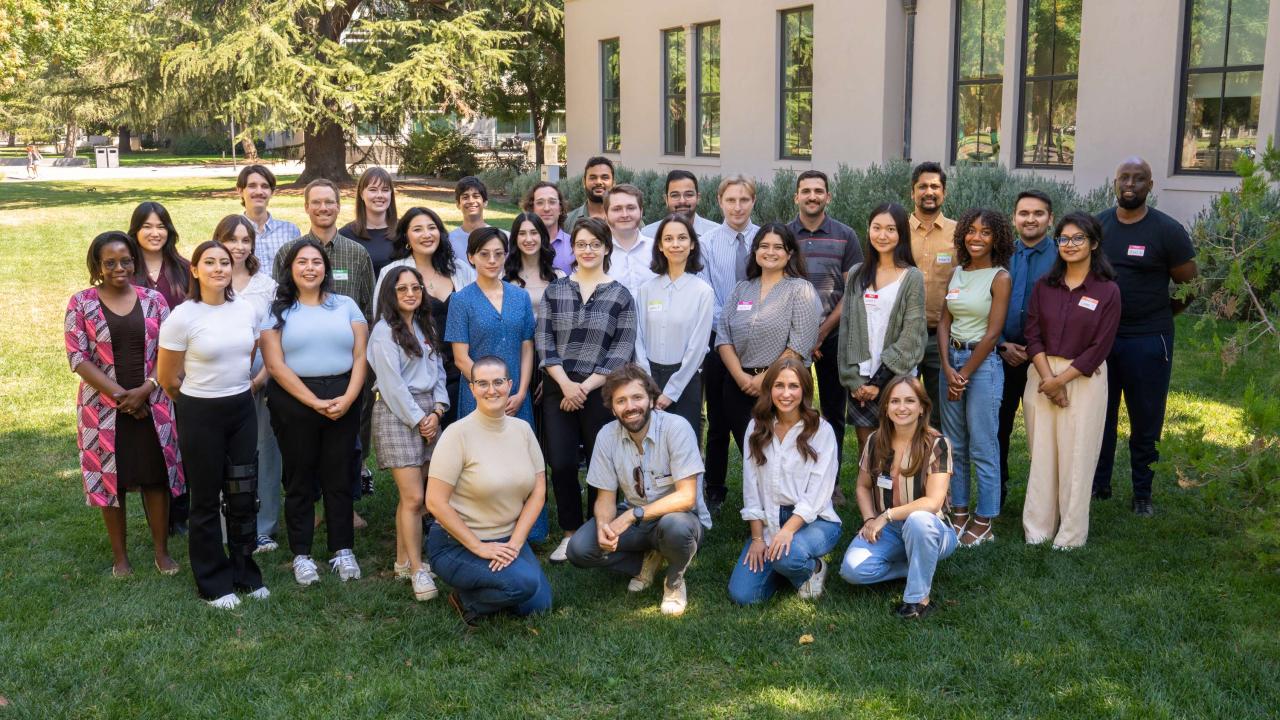
Back to school: new students, new outlooks, and some tips for success!
Welcome to EPM class of 2026!
As the season begins to change and a fresh quarter kicks off, we are excited to extend a warm welcome to our new graduate students! The incoming cohort of 29 students have varied backgrounds including prior degrees and experience in engineering, environmental science, biology, political science, sustainability, environmental policy, geography, and entomology. They are joining us from all around the world: Canada, India, Bangladesh, Kenya as well as Minnesota, Alabama, Nevada and of course, California. Their interests range from waste management, species conservation, corporate sustainability, climate adaptation, transportation access, and more. We look forward to working with them through this exciting journey filled with new opportunities, challenges and discoveries!
We are happy to welcome 28 returning students from our second-year cohort. Many of them have been working over the summer to complete the required Practicum Internship. To meet Practicum requirements, students work with an organization on an environmental policy or management project for a minimum of 180 hours. This past summer, students worked with organizations such as the State Water Resources Control Board, Stantec, Noyo Center for Marine Science, Environmental Council of Sacramento, Green Schoolyards America, Rise South City and more. In the next few weeks, we will feature several Practicum projects that were completed over this summer. Be sure to check out our blog!
Connecting academia and industry
To connect industry with academia, the program hires external lecturers to teach several core courses, allowing students to bridge theoretical knowledge with real-world application. For the 2024-2025 academic year, we will welcome back three external lecturers. Dr. David Bunn, former EPM Director, will return to teach ENV 202: Policy Implementation and Development, a class that educates students on the policy process from developing and enacting legislation, budget changes, regulation development and review. This class was formerly taught by Dr. Julianne McCall, who was recently appointed as the CEO of the California Council of Science and Technology. We are thrilled to have Dr. McCall transition to serve on our External Advisory Committee, a group of senior environmental policy and management professionals who provide guidance to the program's on strategic planning and industry needs as well as mentorship to students. Tracy Winsor will return to teach ENV 201: Environmental Law, a course that develops student's ability to identify, analyze and explain legal issues presented by environmental problems. Abre' Conner, esq. will return to teach ENV 203: Policy Clinic, a hands-on class where students work in small teams with external organizations on an environmental policy or management project.
Tips for success
To wrap up this week's blog, we asked a few second-year EPM students to share their tips for success in graduate school! Here's what they said:
- Set aside some time weekly to dedicate to professional exploration. Search for jobs, go to seminars, connect with mentors, etc.
- Meet with program staff (Jessica Penrose & Jessica Chalfin) each quarter. They have valuable perspectives on classes you should take, mentors you should connect with, ideas for careers, etc.
- Each quarter, sign up for one extra class. Go to every class the first week, then drop one of the extra classes. It's hard to tell what a class will really be like just from the course description.
- Pick classes that will help you grow, not projects that will get you an A.
- Write down important dates for internships, trainings, etc., in advance. They'll sneak up on you.
Cheers to another successful year!
